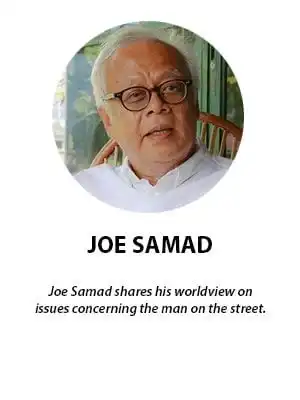
Governments come and go but the people of Sabah remain for better or for worse. In the eyes of the public, after the May 16 fiasco, it is for the worse.
Public anger is still raw over the government’s poor handling of the 40% share of tax revenue case in the Court of Appeal. Many Sabahans are not interested in recriminations or the blame game played by seasoned politicians.
Before May 16, there were hardly any statements from the Gabungan Rakyat Sabah (GRS) government on Sabah Law Society’s (SLS) application for a judicial review over the ongoing dispute on the 40% special grant the state is entitled to under the Federal Constitution.
After the eleventh-hour state intervention challenging SLS’s locus standi, it became clear that those running the state were clueless about the people’s sentiments with regard to the 40% claim.
There was previously an active campaign to bring Sabahans from all walks of life to the courthouse on May 16 to give moral support to SLS. Even the police knew and sent a full contingent for crowd control.
After the fiasco and public anger, the government, the attorney-general (AG), and all political parties came out of the woodwork, making statements “supporting” SLS’s application for judicial review.
Even M Kula Segaran, the deputy law and institutional reform minister, was seen in court and his boss, Azalina Othman Said who paid a “working visit” at the same time, said everyone has a right to bring any dispute to court.
Unfortunately, the state did not send a single senior Cabinet minister or representative from the Attorney-General’s Chambers to watch the proceedings in court.
What happened to our elected officials? One would have thought that the government would form a proper strategy with SLS before the court hearing, rather than scrambling afterwards for damage control and resigning themselves to making feeble statements, which only make the GRS government look more incompetent and impotent than ever.
In 1999, former Sabah chief minister Harris Salleh in a speech said the federal government had the constitutional duty to share revenue collected from Sabah and the responsibility to develop the state socially and economically.
According to Harris, very little is known about the special arrangement to share federal revenue collected from the state with Sabah, although it is enshrined in the Federal Constitution’s 10th Schedule.
In 2016, the then Sabah State Reform Party (STAR) chief, Jeffrey Kitingan, said that the state’s annual budget should include securing 40% of the net revenue entitlement collected by Putrajaya from the state, as well as federal allocations for autonomy.
Kitingan said that the federal government owed Sabah “more than RM100 billion excluding interest” in arrears accumulated and due since 1975.
Based on a back of an envelope calculation, and from various statistics, the federal government is likely to owe Sabah an estimated RM480 billion in back taxes. That is a staggering sum, but I am sure it can be paid in instalments to be negotiated between both parties.
Part of SLS’s judicial review is to seek directions on the last 48 years where Sabah has not been paid its share.
Prime Minister Anwar Ibrahim said in a statement that the implementation of the revision of the special grant rate through an interim settlement was gazetted on Nov 24, 2023. The payment of the 2023 special grants at the new rate of RM300 million to the state governments of Sabah and Sarawak has been completed.
However, some analysts have questioned whether the new rate considers the outstanding amount for the past 48 years when it was gazetted. This question was part of SLS’s judicial review.
State finance minister Masidi Manjun has said that the Sabah government has not received a satisfying response from the federal government despite having sent eight formal requests since 2022 for data required to calculate Sabah’s 40% revenue entitlement.
“The deputy prime minister has given a year to discuss this matter, and we take it as a promise. If both sides still cannot agree on the matter come end of July this year, then the state government has the option to appoint an independent evaluator,” he said during the question-and-answer session at the state assembly.
Masidi said once the deadline has passed, the Sabah government will carry out demands for the revenue rights in phases without complete data from the federal government, with the demanded amount to be based on the state’s own assumed calculations.
What is important for Sabah now is to demonstrate that it has the right governance to manage incoming billions to the state coffers, including how to invest the funds for the people’s wellbeing. The best example is Norway’s Government Pension Fund, which in 2021, was reported to have a staggering $1.1 trillion in assets.
Sarawak has already set up its own wealth fund with an initial allocation of RM8 billion. According to Sarawak premier Abang Johari Openg: “Sarawak’s goal is to let the fund grow steadily over two decades. We draw inspiration from funds like Norway’s sovereign wealth fund.”
With the latest Court of Appeal embarrassment, the Sabah government has yet to get its act together. - FMT
The views expressed are those of the writer and do not necessarily reflect those of MMKtT.


No comments:
Post a Comment
Note: Only a member of this blog may post a comment.